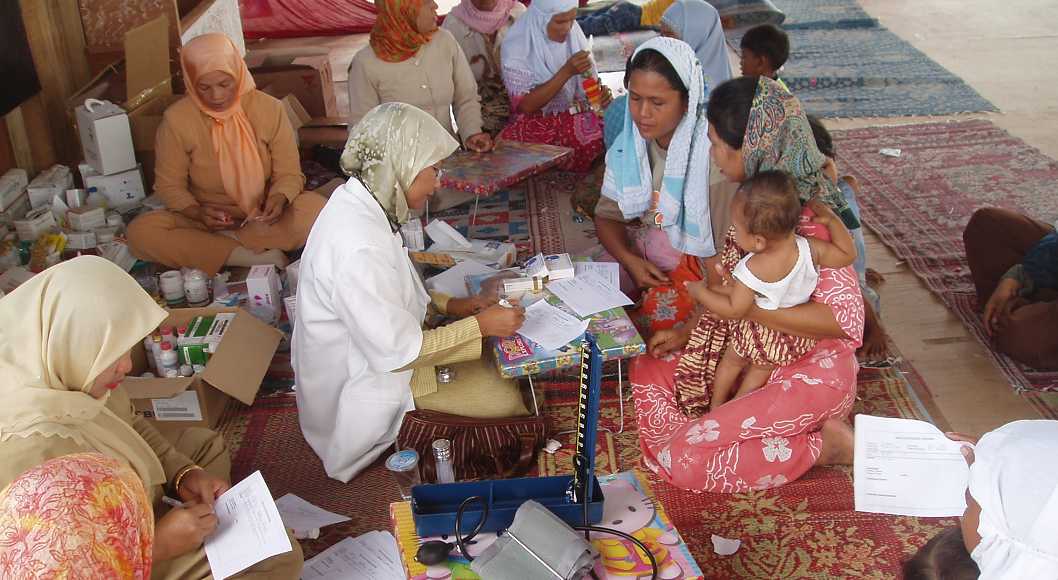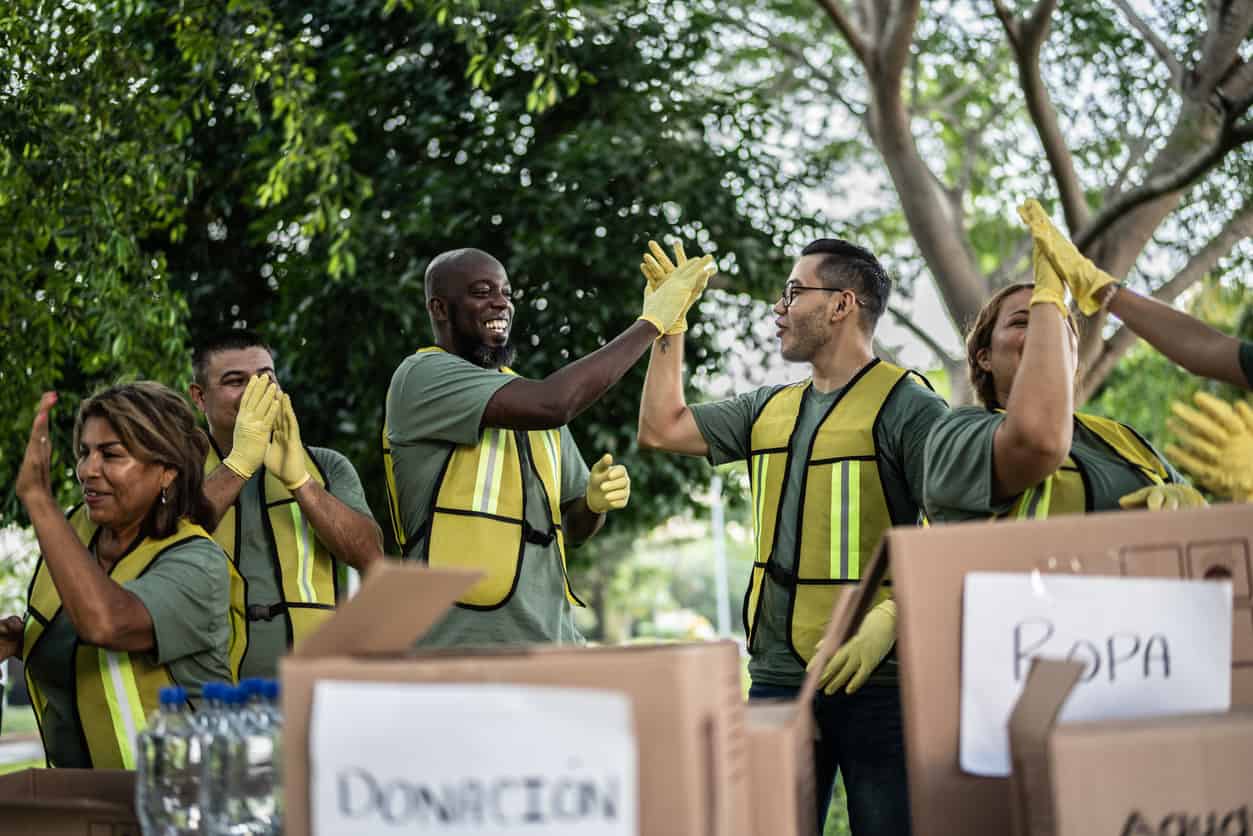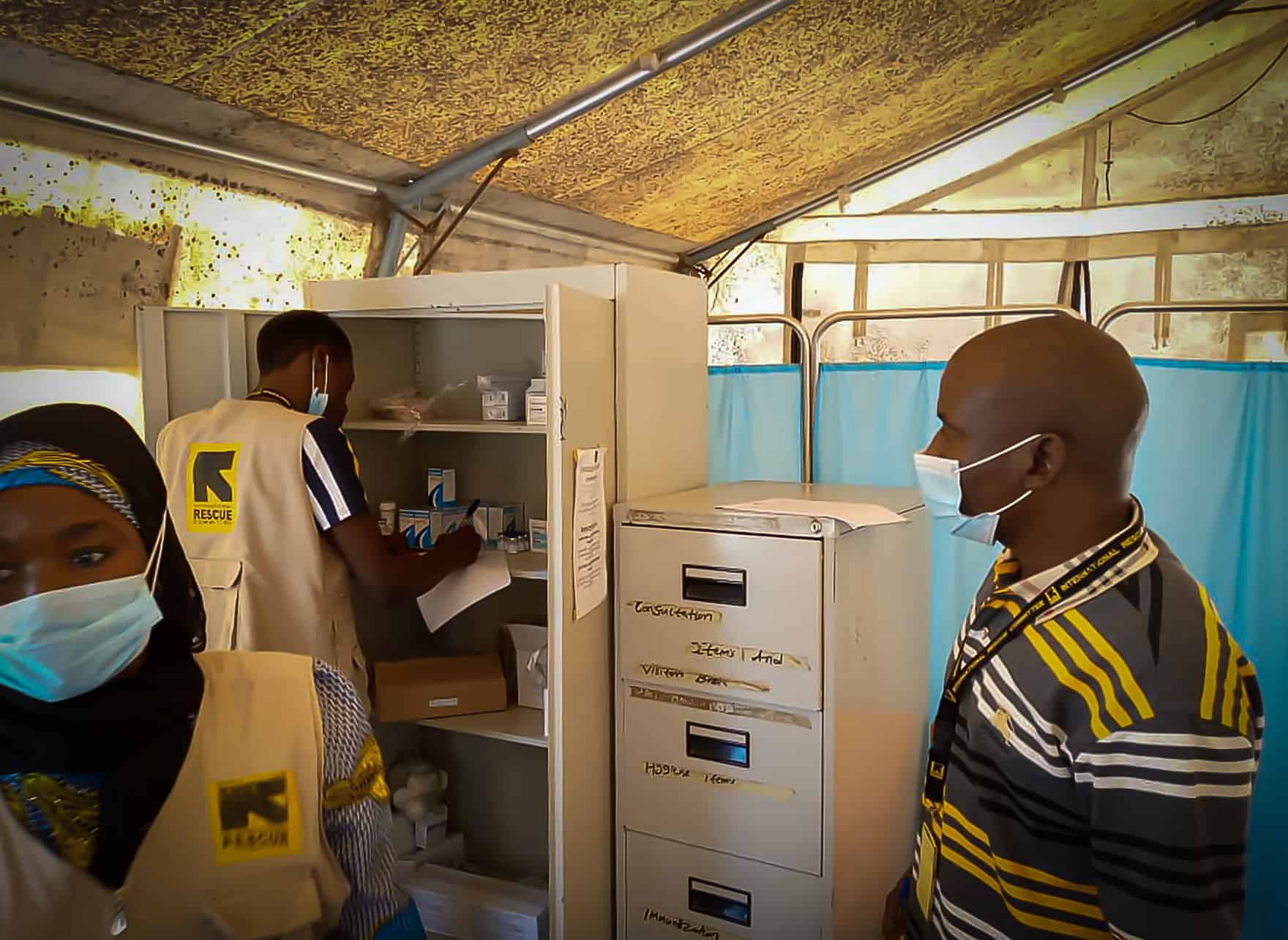Since 2018, this series of projects has supported international and local nongovernmental organizations that work with USAID, enabling them to better manage pharmaceutical and medical commodities (PMC) in humanitarian crisis settings, which will improve PMC availability for people affected by rapid-onset disasters—such as earthquakes, volcanoes, and floods—and slow-onset, complex emergencies and crises, including drought and conflict. We equip the organizations with resources, guidance, training, and follow-up support, and these organizations and their staff will, in turn, support partners, local organizations, and other health program managers in the field, as summarized in this infographic.
The project has developed materials that explore new approaches and learning from recent emergencies in PMC management; conducted PMC supply chain capacity building activities; shared learnings with regional and global communities, including materials in multiple languages; and supported partners to review their strategic investments in supply chain and conduct organizational strengthening activities to improve their PMC management practices.
Some of the program's activities are described below. You can also receive updates by subscribing to our project newsletter.
Blended Learning Courses and Mentoring
Using JSI's standard competency-based curriculum in an innovative blended learning setting with adaptations for humanitarian settings, we offer supply chain management courses that are highly participatory, iterative, and user-centered. They help course participants identify practical supply chain solutions that they can apply within their organizations. These courses are primarily for staff of organizations working with USAID's Bureau for Humanitarian Assistance (BHA). Read more about the blended learning course in this blog on USAID's Medium platform. As a follow-on activity, some of the blended learning participants engaged with supply chain experts through a mentorship project to help advance their organizations' supply chain systems.
Webinars and Technical Discussions
To support supply chain professionals working in humanitarian settings, we conduct webinars and technical discussions on various supply chain topics, including quantification of health commodities in emergency settings, quality assurance, and prepositioning of health commodities. Anyone can join these webinars or view the recordings available on JSI's YouTube channel.
Learning Briefs
We work with partners to highlight important supply chain practices that help to ensure the availability of medicines and other health supplies during emergencies. In a series of learning briefs, we look at tools and practices implemented by humanitarian partners. Some of the briefs are also available in Arabic, French, and Spanish (see the bottom of this page for a listing).
Supply Chain Management Tools and Guidance
To help first responders better manage health supplies in emergency situations, JSI published an addendum to its Supply Chain Management Handbook. The addendum provides an overview of healthcare supply chain management in the humanitarian response context with proven practices that help bridge the transition from relief to development. The addendum is available in Arabic, English, French, Spanish, and Russian.
We maintain lists of tools frequently used by supply chain managers, add new entries as they become available. The lists are available in the HCL library.
Community of Practice
We support the Humanitarian Commodities Logistics group, a community of practice for logisticians working in humanitarian settings. This is a sub-community of the International Association of Public Health Logisticians (IAPHL). We encourage anyone who manages health commodities in humanitarian settings to join.
Global Coordination
JSI coordinates with global working groups and coalitions to provide guidance on best practices, disseminate our learnings, and share learnings from these groups with BHA implementing partners. We also work with these implementing partners to help them adopt better PMC practices into their policies and procedures.
Learn more about JSI's work in supply chain management.





